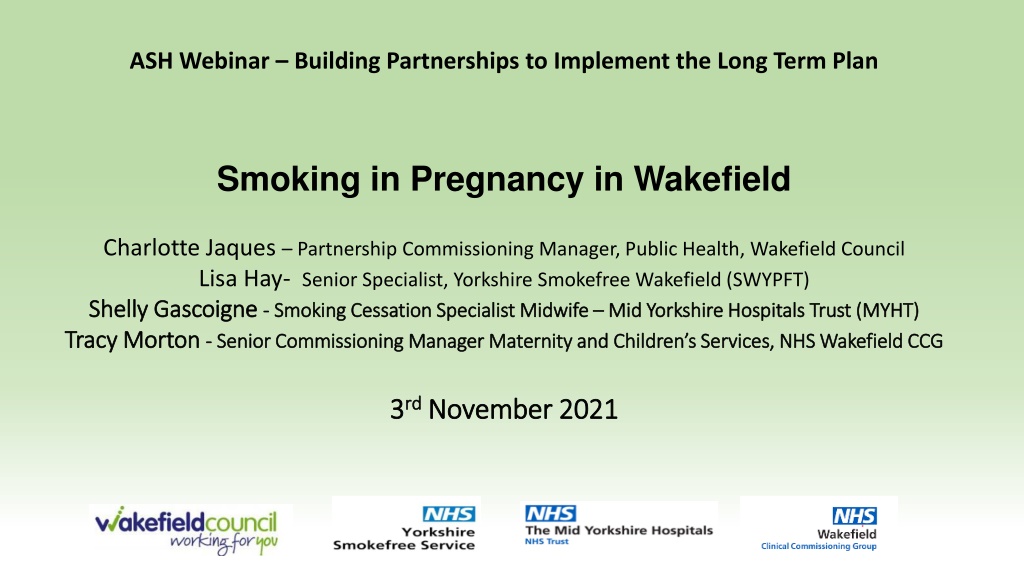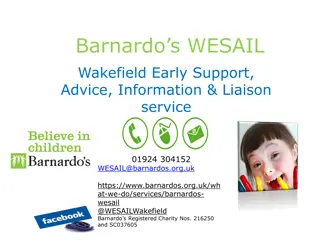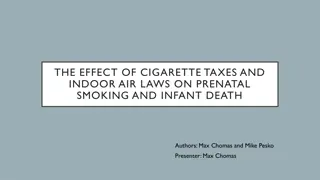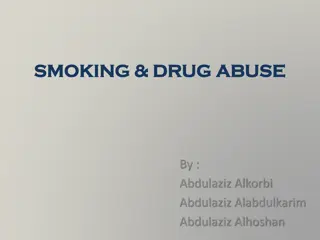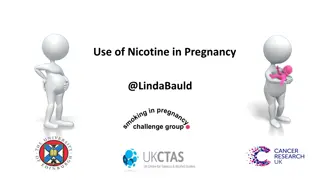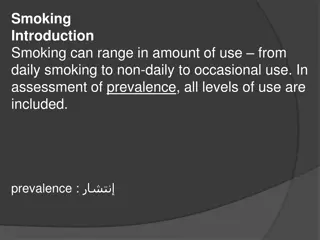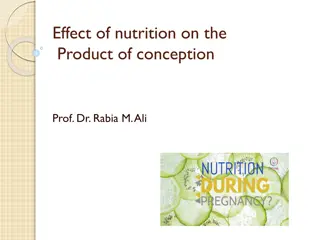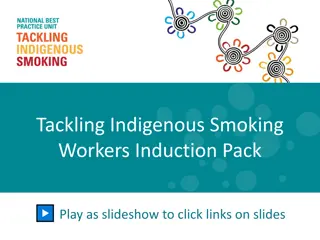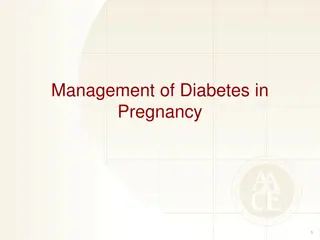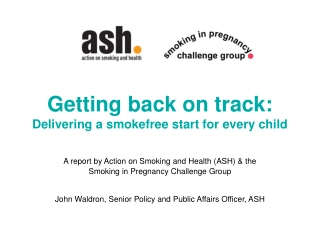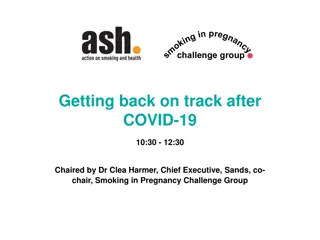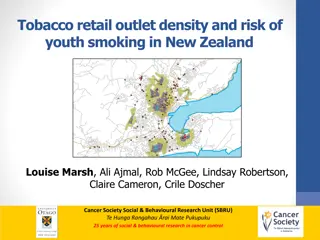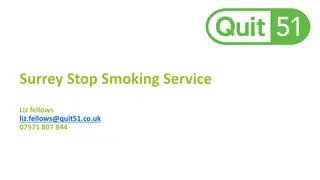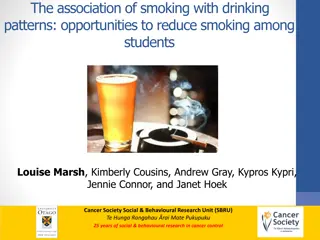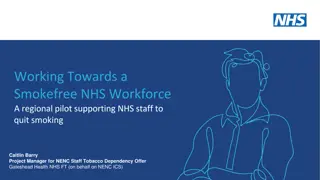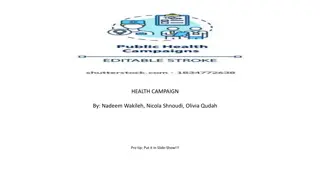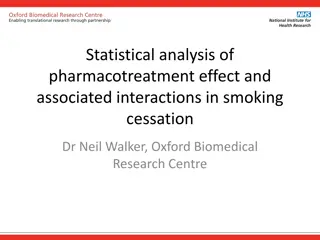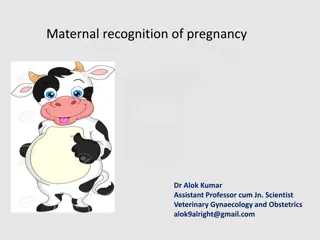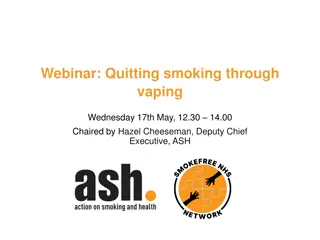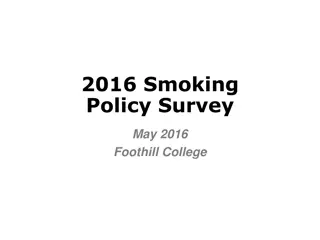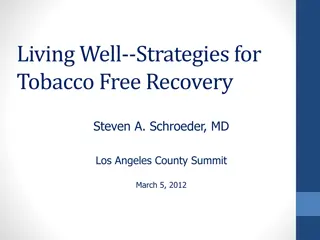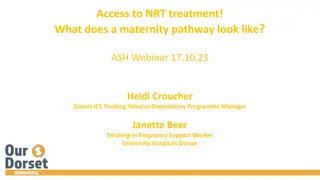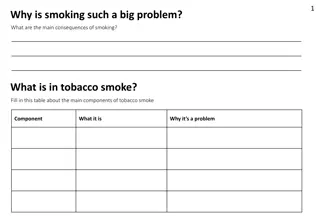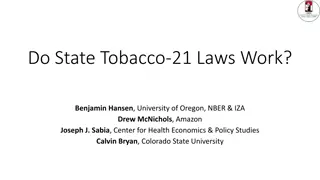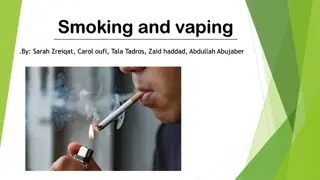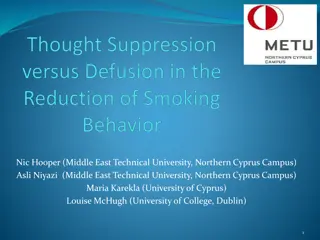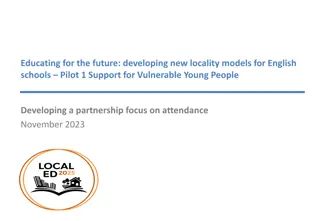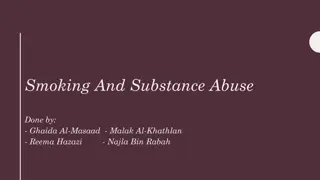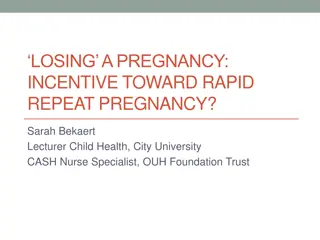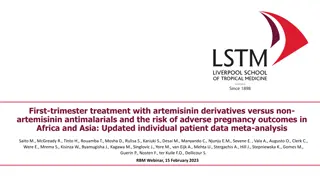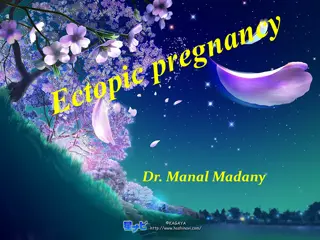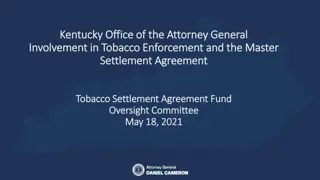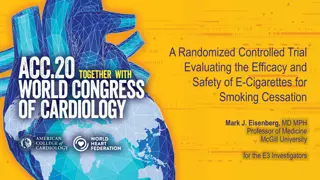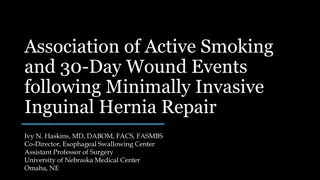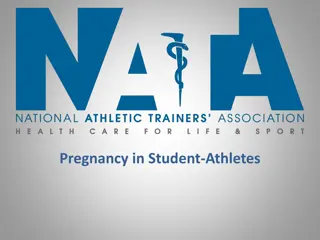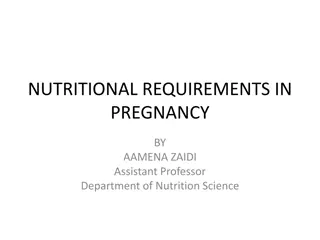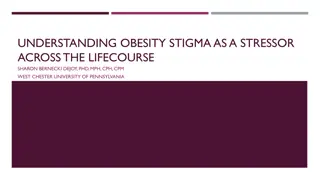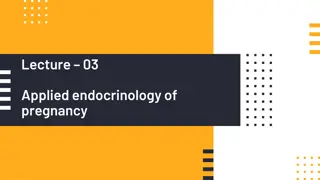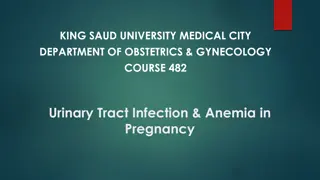Building Partnerships to Reduce Smoking in Pregnancy: Wakefield Case Study
Wakefield Council, NHS Wakefield CCG, and Mid Yorkshire Hospitals Trust collaborated to address high rates of maternal smoking. Initiatives like the Specialist Midwife role and Personal Financial Incentives have proven successful. Regular meetings and training ensure a unified approach, with services working together to support pregnant women in quitting smoking and improving maternal and infant health outcomes.
Uploaded on Oct 08, 2024 | 0 Views
Download Presentation

Please find below an Image/Link to download the presentation.
The content on the website is provided AS IS for your information and personal use only. It may not be sold, licensed, or shared on other websites without obtaining consent from the author. Download presentation by click this link. If you encounter any issues during the download, it is possible that the publisher has removed the file from their server.
E N D
Presentation Transcript
ASH Webinar Building Partnerships to Implement the Long Term Plan Smoking in Pregnancy in Wakefield Charlotte Jaques Partnership Commissioning Manager, Public Health, Wakefield Council Lisa Hay- Senior Specialist, Yorkshire Smokefree Wakefield (SWYPFT) Shelly Gascoigne Shelly Gascoigne - - Smoking Cessation Specialist Midwife Smoking Cessation Specialist Midwife Mid Yorkshire Hospitals Trust (MYHT) Tracy Morton Tracy Morton - - Senior Commissioning Manager Maternity and Children s Services, NHS Wakefield CCG Senior Commissioning Manager Maternity and Children s Services, NHS Wakefield CCG Mid Yorkshire Hospitals Trust (MYHT) 3 3rd rd November 2021 November 2021
Smoking in Pregnancy- Wakefield 14.6% of Wakefield Pregnant mums Smoking at Time of Delivery (SATOD) in 2020/21 SIP rates highest in most deprived areas of Wakefield Stopping smoking in pregnancy is the single biggest change that can improve the health of mum and baby. Stopping smoking is the single most effective thing we can do to reduce risks Wakefield JSNA Further details
Addressing rates of maternal smoking: Investment (short term) from NHS England in 2016 supported the following Projects: Carbon monoxide monitors and consumables Improving data recording and quality to ensure women can be identified and information shared appropriately Stop Smoking Champion/Specialist Midwife Incentivised stop smoking programme - Personal Financial Incentives (PFI) The Specialist Midwife role and the PFI scheme have evaluated as successful resulting in identifying further funding (currently non-recurrent - see dates on next slide) from Wakefield Public Health and Wakefield CCG.
Working in partnership; reducing Smoking in Pregnancy Successful partnership working between services ensures there is consistent support and approach for those smoking in pregnancy. E.g MYHT, SWYPFT Specialist Stop Smoking Service, CCG, Public Health, Council. Meeting regularly; e.g- Smoking In Pregnancy Meetings, Tobacco Alliance, MYHT Smokefree Environment Meeting Stop smoking midwife post within MYHT- Currently funded by Wakefield CCG until end of March 2022. Educator, innovator, role model and leader. Mandatory training, Staff recording data on smoking status, Opt out scheme implemented. Personal Financial incentive (PFI) Voucher Scheme- Funded by Wakefield Public Health until end of December 2021 (150 single use CO monitors funded via Wakefield CCG) Specialist Stop Smoking Service Funded by Wakefield Public Health Smokers are identified as a high risk pregnancy by MYHT with additional input and supervision. E.g Saving Babies Lives bundle and reducing still births, more ultrasonography capacity delivers an enhanced service to mums who are smoking. These extra scans which started on 1st Oct 2020 will be at 32, 36 and 40 weeks. Local Maternity System (LMS) 28 Recommendations for SIP Declaration on Tobacco Control including Health and Wellbeing Board joint declaration Long Term Plan (LTP) - Ongoing discussions in Wakefield and regionally (via the West Yorkshire and Harrogate Care Partnership) identifying areas of SIP work to be funded through LTP
